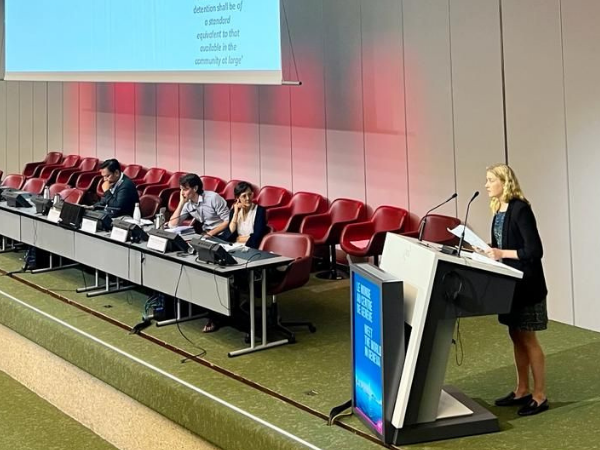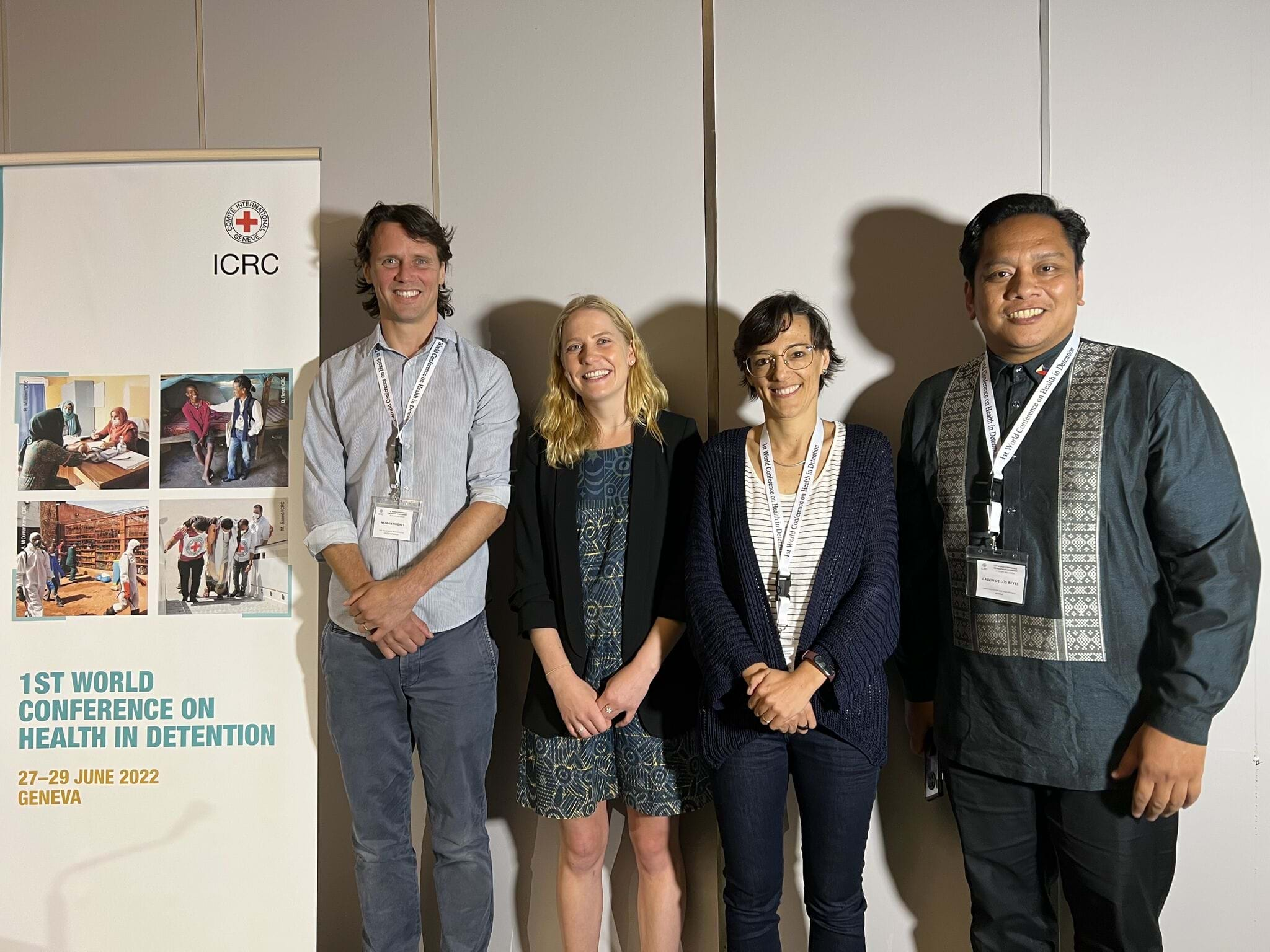9- 12- 2022
Last week, we held our annual 2022 Oration proudly hosted by Commonwealth Bank, moderated by Andrew Hinchliff, Group Executive, Institutional Banking and Markets. The John Monash Oration is an annual event providing insight into different aspects of leadership in Australian society.
The 2022 Oration was held in Sydney on the 29th of November and this year we were delighted to have Carol Schwartz AO, a highly respected philanthropist, businesswoman and community leader deliver the Oration, followed by a response from Ryan Carters, 2018 Roth/Segal John Monash Harvard Scholar, former professional cricket player, founder of Batting for Change charity and a strategy consultant.
The topic for this Oration explores: The power of private and corporate philanthropy: How do we best elevate the role of philanthropy to create robust solutions in civil society? Both speakers shared their insights and experience in philanthropy with such inspiring and passionate intent. The audience then participated in a thought-provoking Q&A session to unpack the ideas shared. Watch here
|
|
Daniel Yore, 2021 Tim Fischer John Monash Scholar, was recently featured in an article and on ABC News 24 discussing the negative consequences for Northern Territory (NT) students of the current funding model, which is the only one in Australia that focuses on attendance rather than enrolment.
This coverage follows Dan's five years of advocacy through the NT Education Union, which included developing a systems model demonstrating how the current policy traps schools in vicious cycles of underfunding during his Masters degree at UCL's Institute of Innovation and Public Purpose this year. In a huge breakthrough, the NT Government has committed to repealing the policy this week, ushering in a significant boost for Territory students, who are currently the most underfunded by need in the country.
"[They] put huge pressure on our principals, and huge pressure on our teachers, but most importantly, territory kids are missing out on the education they deserve, particularly students in some of the most challenging environments.”
Discovery of a genetic link in childhood glaucoma provides hope for the future
A new genetic mutation behind childhood glaucoma has been identified by a team of international researchers, which included Dr Owen Siggs, 2007 John Monash Scholar. The new findings could lead to improved screening for childhood glaucoma and earlier and more targeted treatments to prevent vision loss in children with the mutation.
“This work highlights the power of international collaborations. There’s such incredible genetic diversity across the globe, and comparing this information is becoming more and more critical for discoveries like this.” Read more here.
Hope for 20,000 in heart, cancer fight |
A new multidisciplinary clinic at St Vincent’s Hospital, in Sydney, is treating patients with amyloidosis, a disease that occurs when a protein called amyloid builds up in tissue and organs – including the heart, kidney and nervous system – potentially causing heart failure or other conditions such as cancer.
A collaboration with the Victor Chang Cardiac Research Institute, the clinic is one of six specialised centres in Australia treating amyloidosis, but St Vincent’s Hospital heart failure and transplant cardiologist and 2011 John Monash Scholar, Dr Nikki Bart said a lack of awareness across the Australian medical community and the wider population was leaving an estimated 20,000 patients undiagnosed and many more not having streamlined access to the new lifesaving treatments.
“When I was a medical student, we were taught that this is a super-rare condition that was untreatable. Even five years ago, it was considered a fatal condition and patients had a life expectancy of only four years. But the prevalence is probably quite high and we’re just at the tip of the iceberg in terms of diagnosis.”
Read more here.
The amyloidosis team L-R: Dr Antonia Carroll, Dr Georgia McCaughan, Dr Nikki Bart and Dr Natasha Gorrie. Picture by Chris Pavlich, the Australian. Permission to promote this article was provided by Dr Nikki Bart. This article is a snippet from the Australian.
Indigenous Injury Prevention – An Occupational Physicians perspective
Indigenous injury prevention policy making is not a linear process and has challenged governments in Australia and internationally for decades in terms of creating a viable and sustainable policy response. Dr Brett Shannon, 2021 Australian Universities' John Monash Scholar, provided a keynote in the closing plenary of the 14th World Conference on Injury Prevention and Safety Promotion in Adelaide last month.
His speech unpacked some of the issues surrounding Indigenous injury prevention policy and responses and provided a framework moving forward development of an evidence-based policy using Indigenous occupational injury prevention as an example of one of many areas in Indigenous injury lacking detailed epidemiology.
The power of molecular machinery
A new study led by UNSW Sydney scientists unveils how nature's oldest wheel, found within bacteria, can fix itself when times get tough. The findings, published in Science Advances, show how the flagella—the ancient motor that powers the swimming ability of bacteria—can also help these tiny organisms adjust to conditions where their motility is impaired. The researchers from the School of Biotechnology and Biomolecular Sciences are the first in the world to use CRISPR gene-editing technology to alter a flagellar motor.
Associate Professor Matthew Baker, 2005 John Monash Scholar, and co-author of the paper said the findings will inform how synthetic biology can help create new molecular motors. The findings may also have applications in understanding antimicrobial resistance and the virulence of disease.
How did the global pandemic affect chess players?
Wearing a face mask can temporarily disrupt decision-making in some situations according to Dr David Smerdon, 2011 John Monash Scholar. David analysed almost three million chess moves played by more than eight thousand people in 18 countries before and during the COVID-19 pandemic and found wearing a mask substantially reduced the average quality of player. His study found that while mask-wearing had a negative impact on chess performance, the effect subsided after four to six hours of playing. Read more here.
Scholar presentation
Over the past several months, Jessica Coldrey, 2021 Victorian Government John Monash Scholar, was the Maker in Residence at King's College London’s new Engineering faculty. Jessica had the opportunity to be guest lecturer in design thinking and sustainability, create a mural exploring our global responsibility as engineers, photograph robots, and help to shape a creative faculty culture through student workshops.
Scholar presentation
Maja Arsic, 2017 BHP John Monash Scholar, presented her work on "Beyond waste-to-energy: Can bioenergy drive sustainable Australian agriculture by integrating circular economy with Net Zero ambitions?" at the 9th International Symposium on Energy from Biomass and Waste in Venice.
IN THE MEDIA
Sarah Schwartz, 2019 Roden/Cutler NSW John Monash Scholar, wrote an article for Crikey discussing how her clients at the Victorian Aboriginal Legal Service struggle against the justice systems each day.
Dr Fergus Green, 2012 John Monash Scholar, co-authored an article in The Conversation explaining how the COP27 Summit outlined the future of fossil fuels on the global economy.
Abi Rajkumar, 2023 Rio Tinto John Monash Scholar was featured by Australian National University in celebratory recognition of her achievement in securing a John Monash Scholarship.
Professor Katherine Daniell, 2005 John Monash Scholar, was featured in Australian National University News explaining how cybernetics can help create a safe, sustainable and responsible future in a complex world.
Katherine Mansted, 2016 Roth/Segal John Monash Harvard Scholar, was featured on the Work with Purpose Podcast with the late Professor Brendan Sargeant which discussed a rapidly changing Asia-Pacific region and its impact on Australia, articulating difficult conversations to develop a robust sense of defence in a complex time and much more.
Associate Professor Kate Manne, 2006 John Monash Scholar, was quoted in The Brisbane Times discussing whether trigger warnings on content about sexual assault was helpful or emotionally distressing. (paywall)
for the latest news across our John Monash Scholar community














